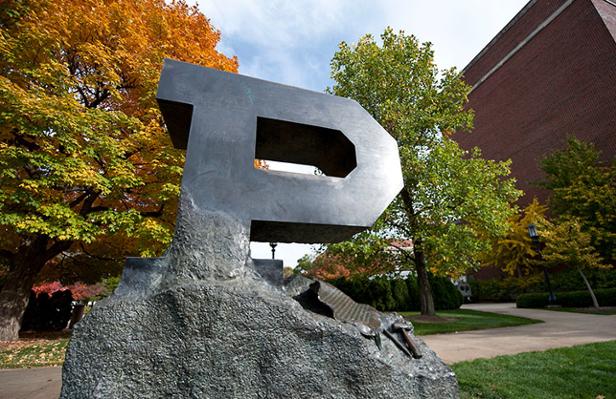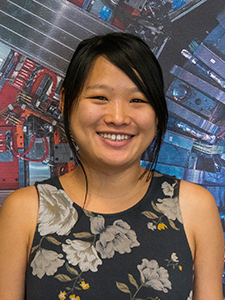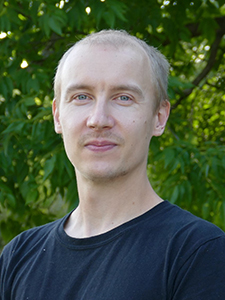
New Faculty

Dr. Paul Duffell is teaching PHYS/ASTR 562 -- High Energy Astrophysics.
"My primary field of research is in computational fluid dynamics, with applications spanning a wide range of topics in astrophysics," says Duffell. "I have worked on planet formation, supernovae, gamma ray bursts, black hole binaries and neutron star mergers. I am also generally interested in fluid instabilities."
When Duffell isn't busying himself with astrophysics and computational fluid dynamics, he enjoys baking and creating stained glass windows.
Duffell received his BS in Physics from the University of Washington in Seattle in 2001, then received his PhD in Physics from New York University in 2014. Between undergraduate and graduate school Duffell says he took time off and worked a wide range of jobs, including a record store, a coffee shop, and a pizza place. After his PhD, he pursued a Postdoctoral Research Fellow at UC Berkeley from 2014-2018 and then a Postdoctoral Research Fellow at the Harvard Center for Astrophysics from 2018-2020.

Dr. Mia Liu brings with her a substantial catalog of works that will help unlock the mysteries of the universe. She will use her extensive knowledge to teach physics and also further her investigative research at Purdue University.
"I am passionate about advancing our capabilities in studying nature's secrets: I led the testing and commissioning of the forward pixel detector Phase 1 upgrade, that is a 'camera' sitting at the 'heart' of the CMS detector providing the most precise 3D measurements," says Liu. "My current endeavor is to apply machine learning techniques in our trigger and data acquisition system, in order to unleash the physics potential of the LHC/High-lumi LHC data."
In her persistent pursuit of the secrets of nature, Liu has worked with cutting edge technology that furthers modern physics. She has worked with the Large Hadron Collider for her recent research.
"My research is focused on understanding the fundamental particles and forces with colliders," says Liu. "I use the data collected by the Compact Muon Solenoid (CMS) detector at the Large Hadron Collider (LHC) to search for the unknown particles such as those predicted in the supersymmetry theories, and stringently test the current theory: the Standard Model by measuring very rare and challenging processes with multiple bosons. At Purdue I will continue with these explorations, with a focus on novel ways to measure the Higgs potential."
Liu obtained her undergraduate degree in China, then came to the United States for graduate school. She obtained her PhD at Duke University in 2015. The Department of Physics and Astronomy is excited that Liu will be taking her next giant leap onto the West Lafayette campus and looks forward to seeing her vision unfold.

Dr. Jukka Vayrynen comes to the Purdue campus at West Lafayette from a post-doc researcher position at the Microsoft quantum group in Santa Barbara, California.
Vayrynen is interested in solving theoretical physics problems related to developing future quantum devices, with a particular focus on condensed matter physics approaches to quantum information science.
When he isn't busy solving the mysteries of physics, he enjoys fishing and has been enjoying the local fishing areas in the Greater Lafayette area. He is also a private pilot.
"Although it's been too many years since the last time I was in the left seat," says Vayrynen "perhaps I'll get current again here at Purdue!"
Vayrynen received his PhD from Yale University after doing his undergraduate studies in Finland (BSc University of Oulu, MSc University of Helsinki). The Department of Physics and Astronomy is excited that Vayrynen will be teaching the next generation of Boilermakers.